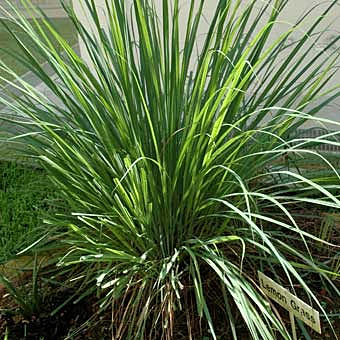Lemongrass, also called fever grass, is a perennial plant with thin, long leaves. While the grass smells like lemon, it tastes milder and sweeter.
USES:
It is used as a herb in various cuisines as a flavoring agent due to its potent flavor.
It is also useful in alternative or complementary remedies for many ailments. It has many beneficial medicinal properties including analgesic, anti-inflammatory, antidepressant, antipyretic, antiseptic, antibacterial, antifungal, astringent, carminative, diuretic, febrifuge, galactogogue, insecticidal, sedative, and anti-cancer properties. The leaves, stems and bulb of lemongrass are used in various treatments.
NUTRITION FACTS:
Lemongrass contains vitamins A and C, folate, folic acid, magnesium, zinc, copper, iron, potassium, phosphorus, calcium and manganese. It also has minute traces of B vitamins.


nice documentation on lemon grass. I generally collect such information before writing for my blog and soon understood that urs will be one of my reference. Since we share common interest I would like to invite you to participate on my first online gzrdening marathon . Please visit
ReplyDeletehttp://mrsroofgardener.blogspot.in/2015/07/le-growlearning-while-growing.html
for further details
I do trust all the ideas you’ve introduced for your post. They are very convincing and will definitely work. Still, the posts are too quick for newbies. Could you please extend them a bit from subsequent time? Thanks for the post.
ReplyDeleteBeing working as a research paper writer in one of the leading online custom paper research writing website, now-a-days, i could be able to see such posts and images about the plants, fresh fruits and vegetables only like images in these blogs, posts and newspapers. The very main reason for such a drastic change is because of technology development most of them love to buy fresh vegetables and fruits from malls and super markets only and not from the farmers and so, only most of the persons living in metropolitan cities are dying out in the age of 50 to 60 itself due to various diseases as their bodies are having less disease resistance.
ReplyDelete